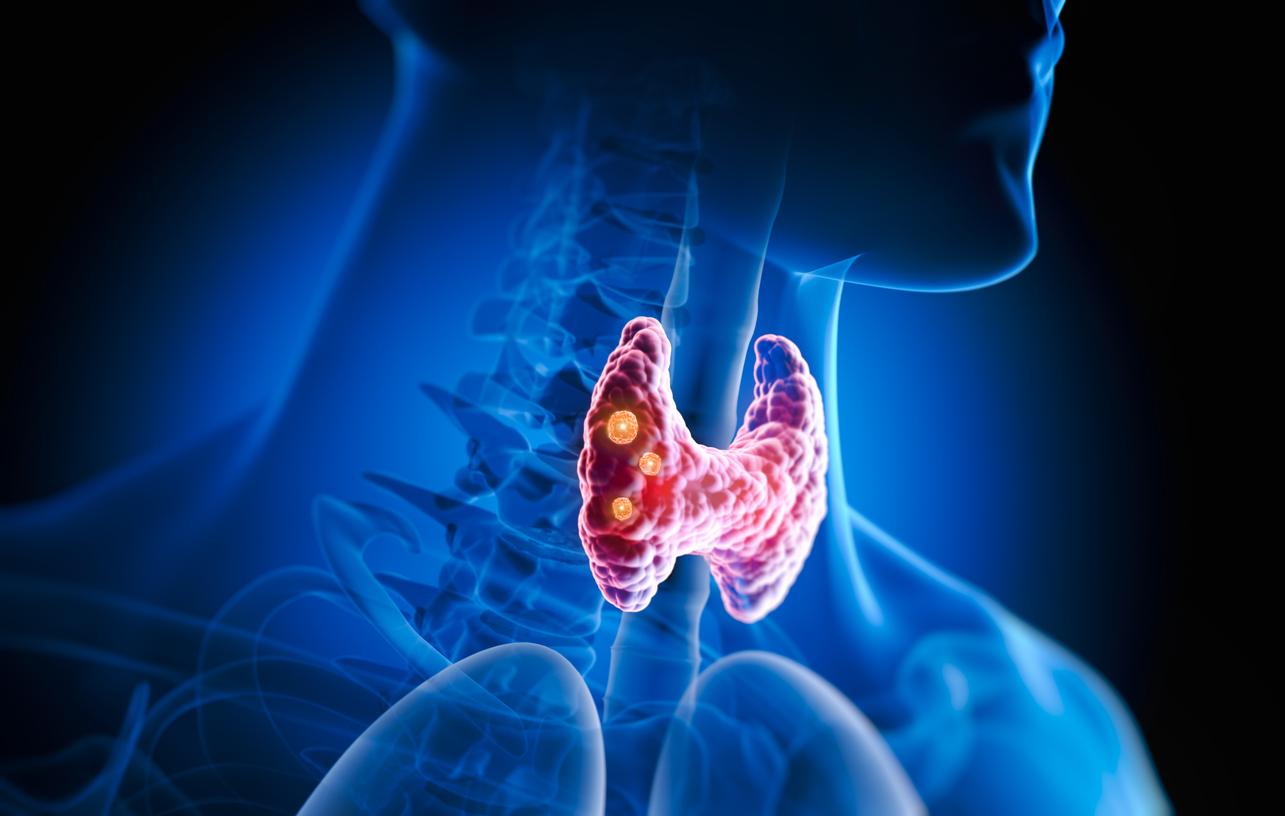There are many symptoms of hyperthyroidism, a disease of the thyroid. Some appear on the face.

- Hyperthyroidism is an overproduction of thyroid hormones.
- It is manifested in particular by facial symptoms such as changes in the appearance of the skin.
- Left untreated, it can have serious health consequences.
The thyroid is a gland located at the base of the neck. Its role is to produce hormones, triiodothyronine and thyroxine, but it happens that it secretes too many of them, it is then a question of hyperthyroidism. This disease is manifested by different symptoms, which are sometimes difficult to spot. L’Health Insurance has listed them all, but she specifies that “if the hyperthyroidism is beginning or not very important, these symptoms are not all present and are less marked”. Some of them concern the face.
What are the facial symptoms of hyperthyroidism?
The hormones produced by the thyroid are involved in the functioning of the epidermis, the surface layer of the skin. Thus, in the case of hyperthyroidism, the overproduction of hormones leads to changes in the appearance of the skin. This can manifest as shiny, warm and moist skin. Some people experience itching and hot flashes in their face. There may also be rashes or hyperpigmentation of the skin.
L’Assurance Maladie points out that hyperthyroidism can cause “abnormal protrusion of the eyes outside the sockets (called proptosis), associated with retraction of the eyelids giving a fixed gaze; it is present in a more or less marked way in Graves’ disease”. The latter is the most common form of hyperthyroidism, it is an autoimmune disease that causes the overproduction of thyroid hormones.
Other parts of the body may also be affected by a change in the appearance of the skin. Some people suffer from pre-tibial edema, a thickening of the front of the leg.
The Varied Symptoms of Hyperthyroidism
But the hormones produced by the thyroid are involved in the functioning of almost every organ in the human body. Hyperthyroidism therefore has multiple consequences on the body. It can lead to rapid weight loss, without the appetite changing, excessive sweating, palpitations, shortness of breath on exertion or even chronic diarrhea. L’Assurance Maladie also cites the decrease in muscle strength and volume, sleep and mood disorders, depression, tremors in the hands or even irregular periods.

What are the consequences of hyperthyroidism?
Appropriate treatment can regulate the production of thyroid hormones and reduce or even eliminate these various symptoms. Management depends on the causes of the pathology.
If the disease is not treated, and the thyroid hormone levels remain high, several complications can occur. Health insurance quotes the acute thyrotoxic crisis: it is characterized by fever, palpitations, dehydration and a state of weakness and confusion. Rare, it requires emergency hospitalization. The pathology can also lead to heart problems, osteoporosis or even fertility problems.

















